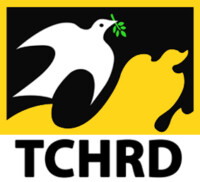
The Tibetan Centre for Human Rights and Democracy (TCHRD) has received the tragic news that Chinese prison officials have cremated Tenzin Delek Rinpoche’s body and still have his remains in their custody.
Tenzin Delek Rinpoche was a prominent reincarnate lama and a highly-revered spiritual leader who died in prison while serving life imprisonment for a crime he never committed. He was in his 13th year of imprisonment when he died on 12 July.
Despite constant requests and demonstrations by Rinpoche’s disciples and local Tibetans, they were not given the final audience to his body. Chinese prison officials did allow a group of monks and followers including some of his relatives to see Rinpoche’s body in prison on 16 July. Some in this group of 32 people reported that Rinpoche seemed to be good physical condition, exuding good facial radiance and few grey hairs. However, there are suspicions that Rinpoche was poisoned judging by the tip of his fingernails and lips that had turned black.
There has been no death certificate issued or any known autopsy done yet, therefore the cause of death is still unknown. A death certificate is an important step in the investigation of his death, which would clarify the uncertainties surrounding his death. Prison authorities purported to read a death certificate to a crowd outside of the prison where Rinpoche died, however they refuse to release written copies of these documents.
According to Chinese Prison Law, Article 55, “if a prisoner dies an abnormal death, the people’s Procuratorate shall immediately conduct examinations and make an appraisal on the cause of the death”. As of now, there has been no such examination. Since his family was not able to take home his body, many suspect that the cause of Rinpoche’s death has some connection to the prison. There is no evidence of any Chinese legislation that the body of a deceased prisoner cannot be taken home by their family members. If the prison authorities cannot explain clearly the reasons for the death, there must be an investigation of Rinpoche’s death in accordance with his family and follower’s wishes.
The series of quick and uncertain events that have followed Rinpoche’s death pose many disturbing questions. TCHRD has received information that four people related to Rinpoche are waiting to receive his ashes at the prison, but have not received them yet. As such, there is no precise evidence whether cremation has actually taken place or not. If so, it is important to know how the cremation was conducted (e.g. electrical or traditional burning) and the exact location of the cremation.
According to Article 19 of the Chinese “Regulations for Handling of Criminals who Die in Prison”, which were passed this year, “after examination of the reasons for death, the body should be cremated within 15 days. If the family of the deceased criminal wishes to postpone the cremation, they must write letter of appeal to the prison.” In line with these regulations, Rinpoche’s family members requested that the cremation be postponed, which was completely disregarded by Chinese prison authorities who proceeded with hasty cremation plans. Significantly, article 24 of the Regulations provide that “if the deceased criminal belongs to ethnic minority community, decisions regarding the body must be made with due respect to traditional practice of the ethnic community.”
TCHRD calls on the Chinese authorities to launch an impartial investigation into Rinpoche’s death without delay. TCHRD urges the authorities at Chuangdong prison, where Rinpoche died, to release a death certificate for Rinpoche, which must be prepared by a competent medical practitioner and provided to Rinpoche’s family members. TCHRD also calls on Chinese prison officials to release Rinpoche’s ashes to his family or monastery as soon as possible so they can perform the traditional ceremonial rites, according to the freedom of religion included in the Chinese Constitution.
TCHRD calls on the international community – individuals and organisations – to ask the Chinese authorities to release a copy of the official death certificate, and launch an independent and impartial investigation to ascertain the actual causes that led to Rinpoche’s untimely death.
Relatives of Rinpoche have submitted a written appeal, signed by Rinpoche’s sister Dolkar Lhamo, that called for re-investigation of the events leading to and after the death of Rinpoche. Below is a translation done by ICT with slight changes made by TCHRD:
Appeal for Re-investigation
- Today the prison authorities read us many documents of certification of death. When we requested a copy of the documents that were read, they accepted from the prison in the morning. The name of the person was Secretary Huang. But in the afternoon they told us they can not give the copies of the documents.
- Since the body of the deceased cannot be taken home, we suspect the cause of death has some connection to the prison. Please tell us clearly, which legal article states that the body of the deceased cannot be taken to home.
- If the prison authorities cannot explain clearly the reasons for the death, then we will urge journalists and relevant personnel to conduct a thorough investigation of this case. If we are allowed to take the deceased’s body home then we will not follow up on this. This is the wish of the family, relatives and all the followers.
- At the time of death of the deceased, the prison staff knew that we were waiting in Chengdu. Under this circumstance, why did they not inform us at the first instance? Furthermore, the time of death provided by the prison is inconsistent. According to one version, it was 2 o’clock and another was 4 o’clock.
- The prison authorities told us if we don’t come to see the deceased’s body, then they will cremate the body within a scheduled time. Is there any law that states that the deceased prisoner’s body can be cremated before the detention center and relevant department have given us a satisfactory explanation of the cause of death?
Applicant-Dolkar
